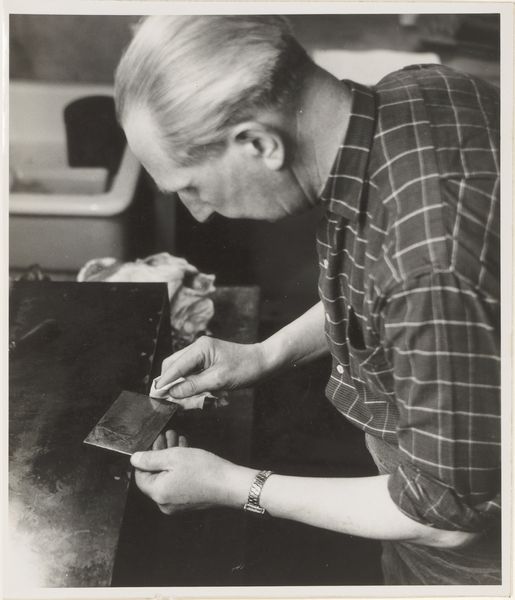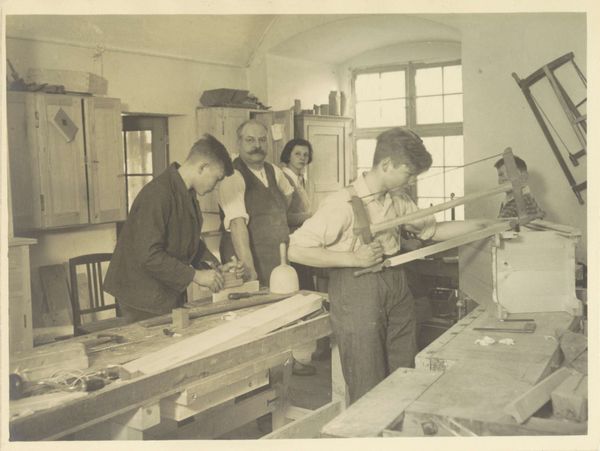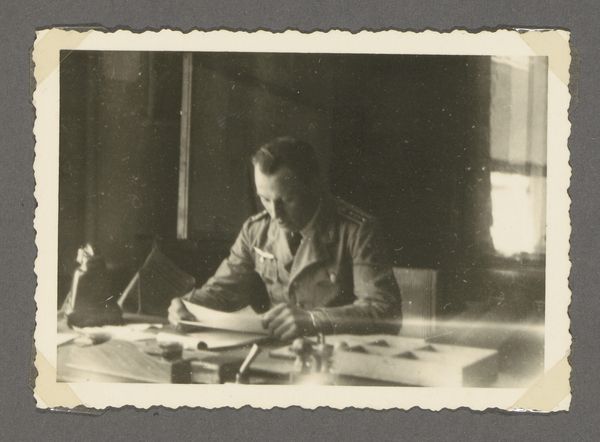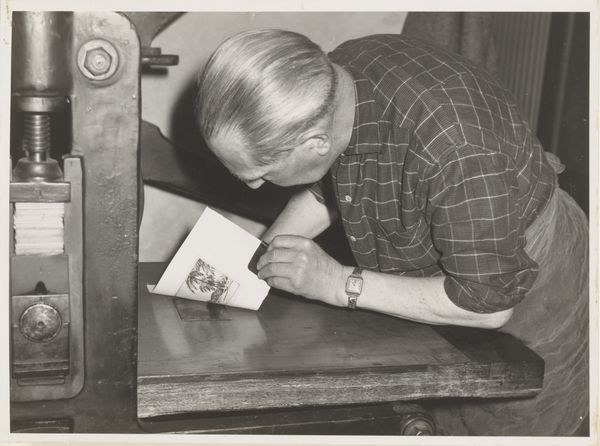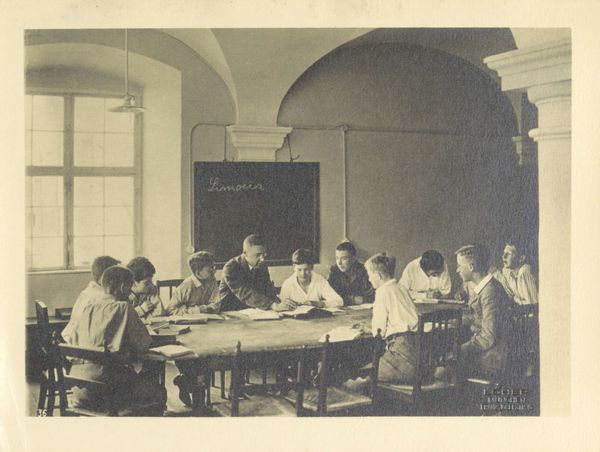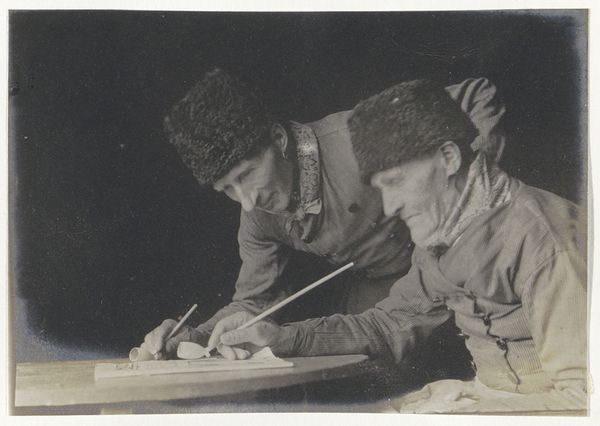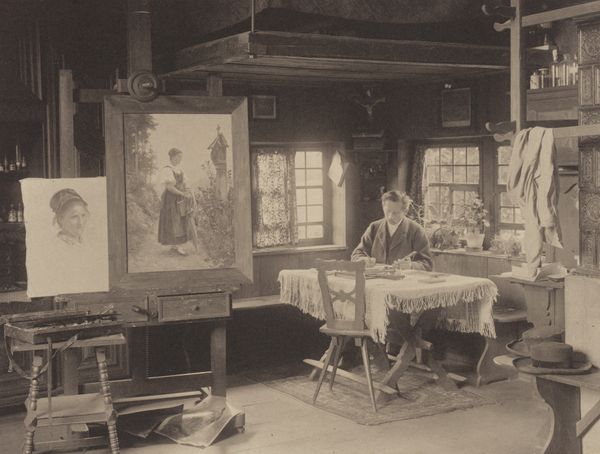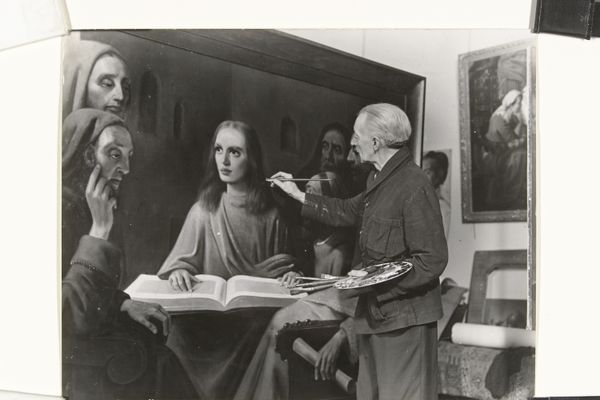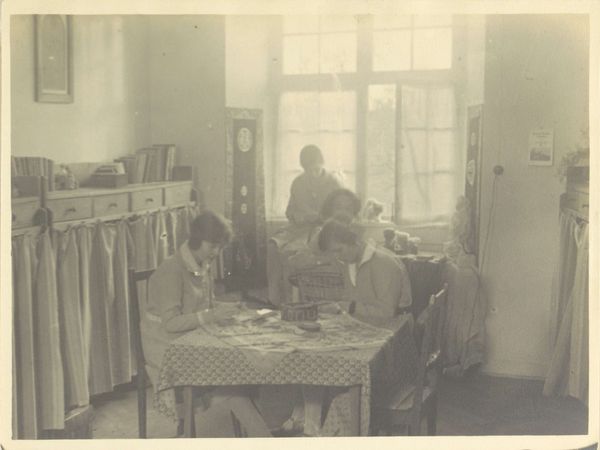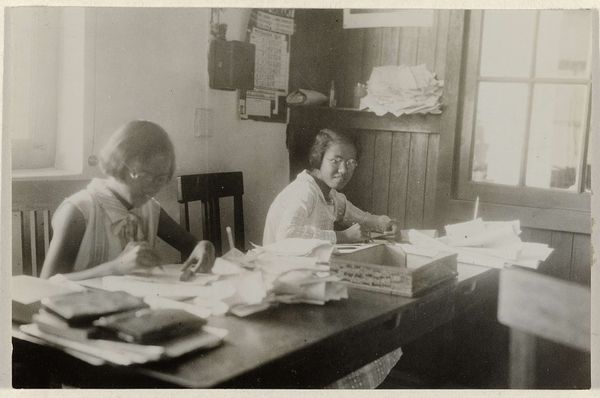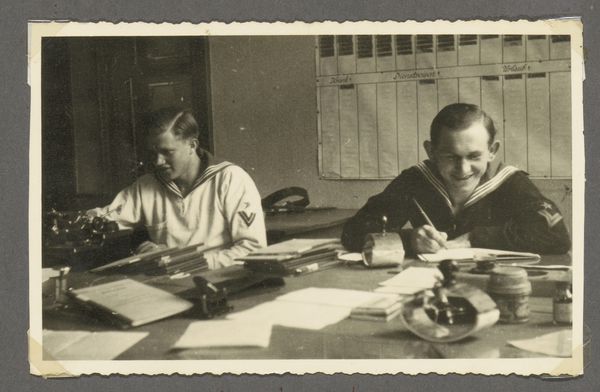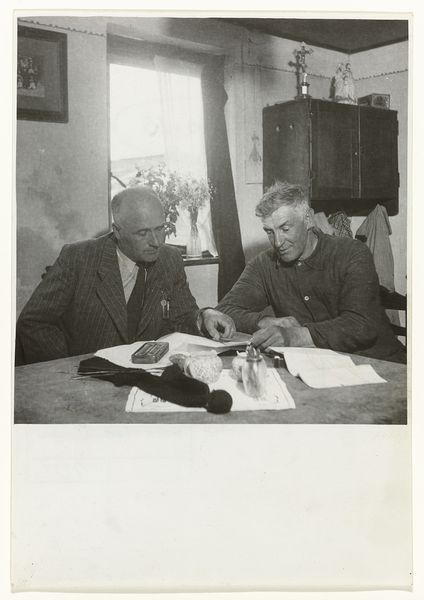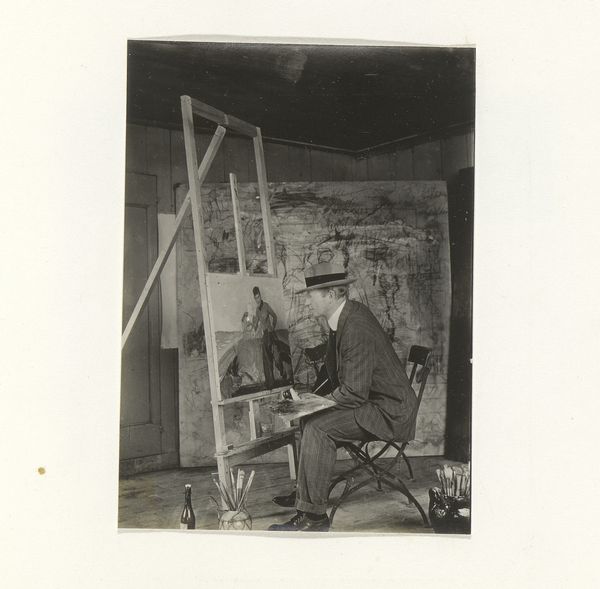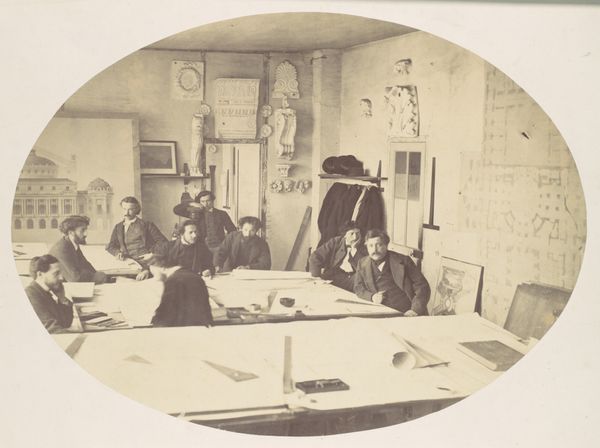
carving, photography, gelatin-silver-print, wood
#
portrait
#
carving
#
german-expressionism
#
archive photography
#
photography
#
historical photography
#
group-portraits
#
gelatin-silver-print
#
wood
#
modernism
Dimensions: height 180 mm, width 238 mm
Copyright: Rijks Museum: Open Domain
Editor: Here we have an interesting gelatin silver print from circa 1929. It's called "Leerlingen van Schule Schloss Salem assisteren een houtsnijder," which translates to "Students of Schule Schloss Salem Assist a Woodcarver." There's a contemplative mood to the image; you see figures absorbed in craft and education. What do you see when you look at it? Curator: I note immediately the interplay of light and shadow. The limited tonal range, inherent to gelatin silver prints, creates a flattened picture plane, pushing us to consider the shapes and forms. Consider the composition: the students, arranged almost linearly, guide our eyes toward the master woodcarver, yet each is distinct, caught in their own process. Editor: That’s interesting, their individual engagement. How does the medium of photography itself affect our interpretation? Curator: Photography, especially in this context, functions as a document but also an aesthetic object. It's not merely a record of an event. It captures the nuances of texture—the grain of the wood, the weave of the clothing, creating visual interest and layering. The repetitive angular forms contribute a Modernist aesthetic; do you find yourself responding to it in that light? Editor: Yes, I think the repeated forms do give it that feel! Thanks for this analysis; I’m looking at the image very differently now. Curator: Indeed, the strength lies within its formal arrangements, inviting exploration into the interplay of structure and form inherent to photographic and sculptural representation.
Comments
No comments
Be the first to comment and join the conversation on the ultimate creative platform.
